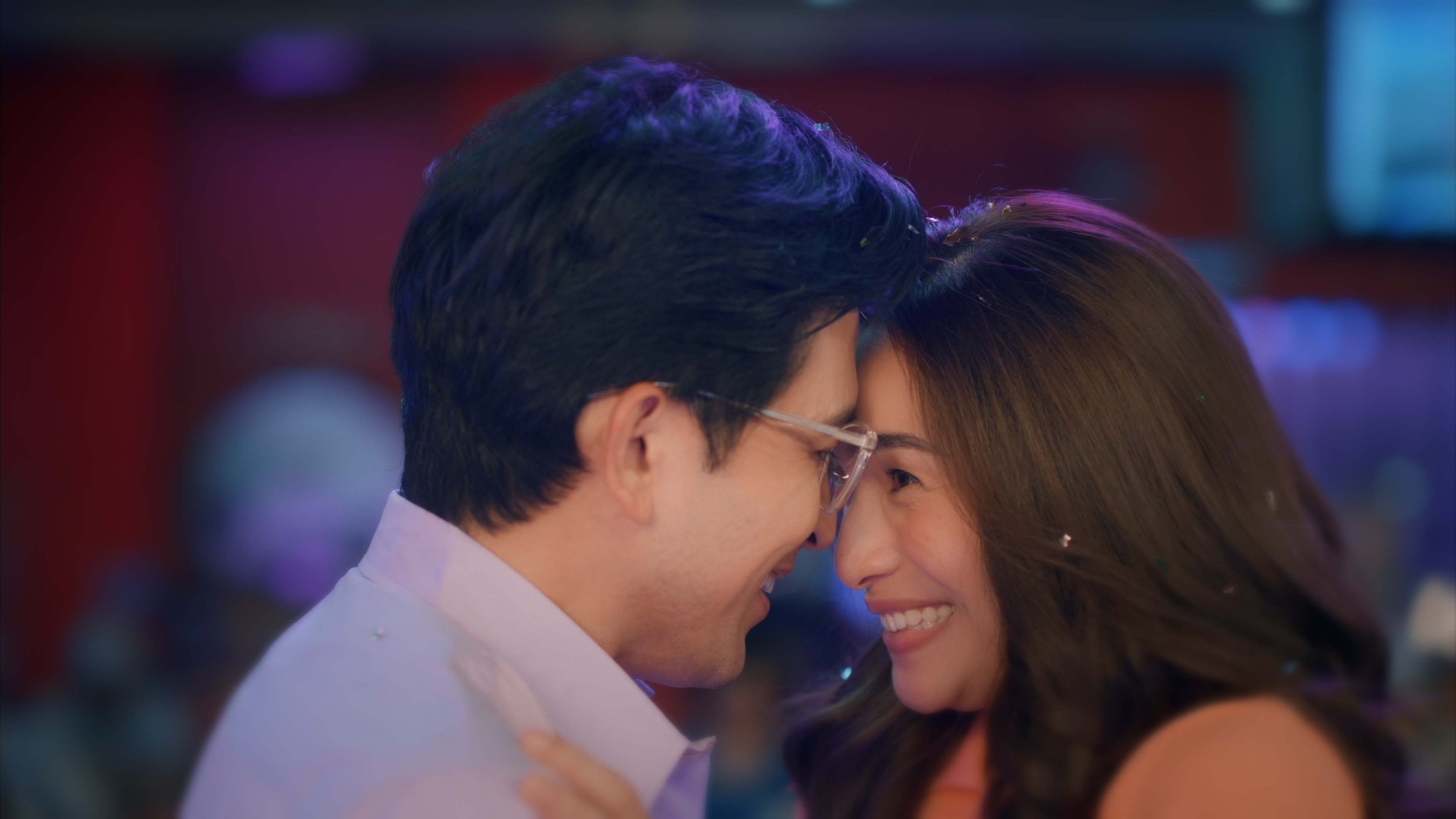'Barbie' REVIEW: The Beautiful Gaps in Barbie's Mother-Daughter Subplot
‘Barbie’ REVIEW: The Beautiful Gaps in Barbie’s Mother-Daughter Subplot
Let’s make things clear first, I loved “Barbie.” It radiates with vibrant wit and a throbbing emotional pulse. A fictional “Barbieland” sets the stage for real-world conundrums to frolic in an unusual yet mesmerizing playground. Here, cups remain devoid of water, and showers are mere figments of the imagination. Perfection prevails, void of any necessity for transformation, lest it bring forth unthinkable anxieties. The film's meta humor, adroitly self-aware, shines on the screen, remaining consistently fresh and avoiding any touch of the mundane. Gender politics and femininity are addressed under the facade of colorful and cheerful visuals that alleviate the heaviness these concepts frequently carry. As the film implies, if even an idyllic world of fiction is not immune to inequality and arbitrariness, how can our real world fare better?
Greta Gerwig, seeking to forge a distinguished persona for Barbie, one that steps beyond the corporate machinations and transnational interests of Mattel, secures a delicate equilibrium that noticeably tips in her favor. This is a triumph, especially when products such as Barbie prosper chiefly due to their polished representation and their tactful flirtation with the status quo. For instance, a pregnant Barbie was discontinued due to its supposed encouragement of motherhood, a narrative that flies in the face of Mattel's goal to model Barbie as a self-reliant careerist, not a billboard for teenage motherhood. The concern extends beyond mere sales; it encompasses the challenge of sculpting a widely appealing and relatable female character that appeals to parents, social circles, and children alike.
So, how does "Barbie" rise to this colossal corporate task? By throwing business think in the can and letting creative liberty take center stage. We get to see a pregnant Barbie. We witness a multi-ethnic landscape replete with a diversity of women steering the wheels of power. We observe Ken in a servile role and Ken as the most annoying man you have already probably met. Gerwig refashions Barbie by endorsing the multiplicity of roles and perceptions that she has metamorphosed through over time.
Such is especially the case with stereotypical Barbie, earnestly embodied by Margot Robbie, who grapples with overthinking, contemplates mortality, and sports flat feet. This unexpected contemplation of life's purpose casts a pall over Barbie, compelling her to depart Barbieland. But, it has repercussions for her Ken, played by an impressively hilarious Ryan Gosling, whose world of joy and fulfillment hinges on Barbie. It's a playful nod to the enduring narrative of Ken's dependency on Barbie, comedically enhanced by the "And Ken" sobriquet (and the many “literally me” memes about Gosling).
What incites Barbie's existential turmoil? Her owner appears to have outgrown her and renounced her doll-playing days. Sasha (portrayed by Ariana Greenblatt) is now navigating the tumultuous tween years, an edgy, cynical schoolgirl who chides Barbie for embodying women's unattainable beauty standards. It's a denunciation of Barbie's very existence, communicated directly to a human manifestation of Barbie. A doll or a corporation might withstand such barbs (pun definitely intended), but a human, now equipped with emotions and a soul, struggles with this reality.
As it turns out, the person pulling Barbie's internal strings is Sasha's mother, Gloria, compellingly played by America Ferrera, who remains a charming standout in any film she’s in. Life’s disenchantment and her estrangement with her daughter have fueled her need to channel her emotions onto Barbie, thereby imprinting her persona onto plastic. At this juncture of the film, I thought, “Brilliant.” We get to see Barbie through the eyes of a grown-up mom, a woman who has faced the complexities of life and sought refuge in stillness, deriving comfort from societal roles all too often defined by men (specifically, Mattel).
And we do get a payoff for this, exemplified by a fervent monologue given by Ferrera that flips the third act into a joyous coup. Her speech becomes the catalyst for the Barbies to reclaim their paradise and deal the decisive ego blow to their Kens. Yet, amidst all this, something seemed to get lost. Notwithstanding the absolute pleasure I took in witnessing Ryan Gosling and other Kens perform a dance number reminiscent of Grease Lightning, and as enthralled as I was to watch Ruth Handler in a dialogue with her own invention, there was a subplot that I believed warranted more attention and could've been the primary narrative strand of the movie.
What Happened to Sasha and Gloria’s Story?
At the film's midpoint, after the bedlam they experienced in Kenland, Sasha and Gloria make their way back to the real world, with Allan unexpectedly joining them. Sasha, having seen her mother's deep connection with Barbie and its reflection on her character, undergoes a change of heart. She urges her mother that they should return and help Barbie to fend off the Kens. Almost immediately, a touching reconciliation happens while Allan duels with some Kens off to the side, providing a short, sweet, and slightly comic scene.
The issue, though, is that this progression happens too quickly and feels anticlimactic. The film prepares us for Barbie's venture into the real world as a means to resolve the initial problem of a disillusioned tween girl. Given Gerwig's known knack and pedigree for illustrating the complexity of mother-daughter dynamics, I thought this would be a fruitful domain for her to deploy her finest tendencies. Instead, this relationship seemed hastily tackled, overshadowed by the appearance of Ruth Handler, where Barbie is framed as the daughter and Handler as the mother.
This isn't to say that the eventual conclusion, Barbie's voyage towards self-discovery and complete autonomy (coupled with a beautifully composed montage), is unsatisfactory. It just feels detached from a story thread that the film appears to have been spinning for two-thirds of its runtime. Maybe it has to do with the myriad of characters and intertwining narratives "Barbie" has to balance as it heads into the third act.
At its core, Barbie’s journey and the pursuit of purpose seem to be intrinsically tied to the relationships that bind us in the real world – those fragile, yet irreplaceable connections. There’s an achingly beautiful scene where Barbie pauses in her journey, simply sitting on a park bench to quietly observe life as it happens around her – an eloquent testament to the film's overall theme. Gerwig positions the doll as a mirror, reflecting back at us the world we know, with all its shortcomings and glory. We are made privy to the profound intricacies of being human, via the journey of a woman made of plastic. It's a dance of irony and earnestness, poignant in its delivery and execution.
Yet, the narrative, in its keenness to reintroduce Handler and Mattel nostalgia, seemingly lost sight of this profound human bond in the third act. This is a missed opportunity considering the cross-generational connections Barbie offers to women, connections that could've lent deeper layers to Gloria and Sasha's relationship. It's a beautiful paradox: the younger Sasha outgrows Barbie, while the older Gloria finds solace in her. In this odd ballet of circumstances, Barbie could've been the cord connecting the generations, a vessel for dreams and the quest for a utopia that mirrors the vibrant colors of Barbieland.
The best part? The conclusion featuring Barbie's self-discovery still stands, but now with the belief that, despite all of their flaws, contradictions, capacity for causing pain, and our seemingly foolish pursuits, humanity, in all its complex grandeur, remains a worthy endeavor. That, in essence, is the bedrock of this narrative – the abiding love a mother holds for her daughter. It's a love that bears the weight of challenges, a love that acknowledges and embraces the very core of being human, a resounding testimony to the robust and persistent beauty of shared experiences.











